
Bananas are very low in saturated fat, cholesterol and sodium and are a good source of dietary fiber, vitamins C and B-6 and the minerals potassium and manganese. They are great sources of energy that can be eaten in many ways, including mixed with other fruit to make a fruit salad, sliced on cereal or yogurt, combined in a sandwich with peanut butter or blended into a smoothie. A banana makes a convenient snack for those on the go -- all wrapped up in its very own package.
Calorie Information
A medium-sized banana has about 105 calories. Of those calories, 97.4 percent come from carbohydrates, 3.3 come from fat and 4.3 from protein. A banana contains 27 grams of total carbohydrates, with 3.1 grams representing fiber, 6.3 grams starch and 14.4 grams naturally present sugars. A banana has only 0.4 grams of fat in a single serving, with almost twice as much omega-6 fatty acids compared to omega-3 fatty acids.
Vitamin and Mineral Content
A single banana contains 75.5 IU of vitamin A, 10.3 milligrams of vitamin C,11.6 milligrams choline and trace amounts of vitamin E, vitamin K, riboflavin, niacin, vitamin B-6, folate, pantothenic acid and betaine. Additionally, a medium-sized banana contains 5 milligrams of calcium, 31 milligrams of magnesium, 422 milligrams of potassium and trace amounts of sodium, zinc, iron, copper and selenium.
Health Benefits
Bananas offer several health benefits because they are considered potassium-rich foods. Potassium is an important mineral in the regulation of blood pressure, organ health and muscle integrity. Potassium deficiency symptoms can range from cramped and tired muscles to high blood pressure and headaches. Bananas help maintain cellular function, electrolyte balance and a healthy cardio-vascular system. They also offer a quick, convenient and bio-available source of immediate and long-term energy.
More Facts
Bananas can reduce depression because they contain tryptophan, which converts to serotonin, known to improve mood. Because bananas contain the prebiotic compound fructooligosaccharide, they provide nourishment to the probiotic flora, or good bacteria, present in the gut. Prebiotics are insoluble fiber components present in food that stimulate the growth of bacteria in the digestive system and help produce digestive enzymes. A strong showing of healthy prebiotics and probiotics in the intestinal tract is beneficial to the immune system and overall digestive health.
Related Articles

How Long Does Banana Bread Stay Fresh?
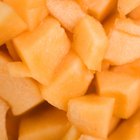
How to Make Melon Ice Cream

Calories in Banana Pancakes

How to Make Fresh Strawberry Frosting ...

How to Make Sweet Brown Rice
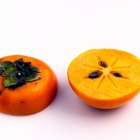
What Are the Benefits of Persimmons?

Benefits of Shea Butter and Coconut Oil ...

How to Freeze Tzatziki

Nutrition Information on Blueberries
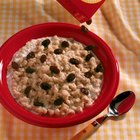
How to Make Quaker Oatmeal

How to Repair Open Pores
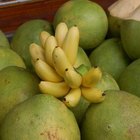
Foods From Rainforest Plants
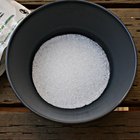
How to Make Xylitol Toothpaste

How to Make a Lip Mask for Extremely ...

Difference Between Canned Pumpkin & ...

How to Make Natural Deodorant From ...

How to Make Really Good Lemonade

Fruits & Vegetables Rich in Potassium ...
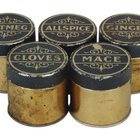
How to Make Sugared Almonds

Are Bananas Safe to Eat if the Skin Is ...
References
Writer Bio
Barbara Bates began writing professionally in 2010. She brings expertise in the areas of holistic nutrition and fitness. Bates holds a Master of Science in nutrition from the Edison Institute in Chicago and currently runs a wellness practice in Canada.
Photo Credits
Jitka Unverdorbenova/iStock/Getty Images